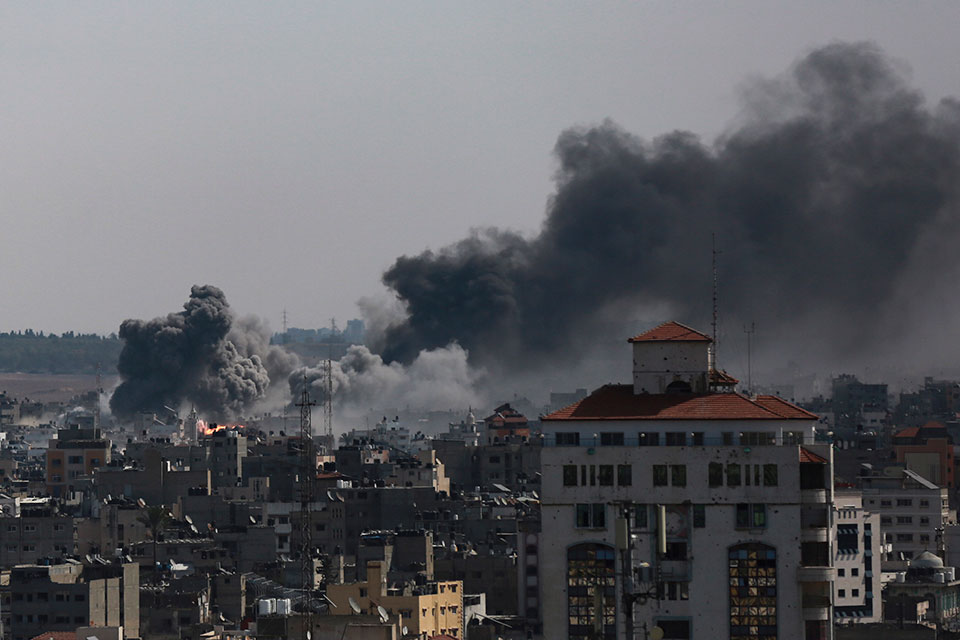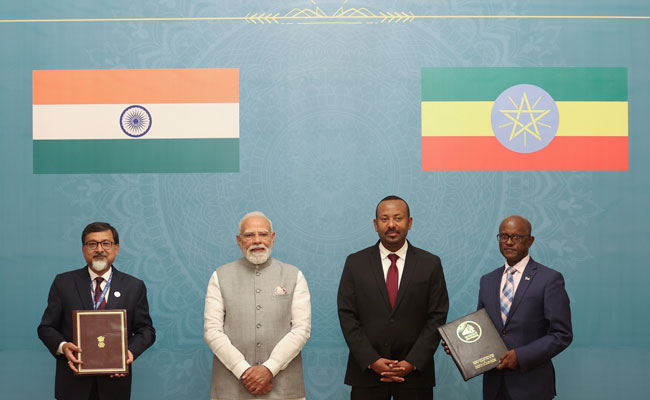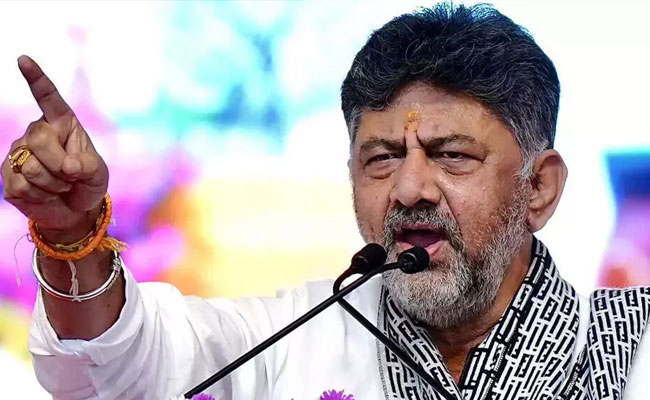Renowned journalist Mehdi Hasan has launched a groundbreaking video series titled 'Debunked' on Zeteo, which began with a video dissecting what he asserts are seven misleading narratives propagated by Israel concerning Gaza.
Hasan, taking to his social media platform, expressed the necessity of exposing these "dangerous lies" that have, according to him, been overlooked by mainstream media.
Hasan wrote, “we must call out those dangerous lies even if others in our media won’t”. He said his new video series is devoted to “debunking the top seven lies about Gaza & October 7th”.
1. Alleged Ceasefire Breach:
Hasan begins by challenging the assertion that Hamas broke an existing ceasefire on October 7th, a claim repeatedly made by Israel. Contradicting Israeli leaders, Hasan cites news articles from the AP news agency that reported Israeli airstrikes in Gaza two weeks before the October 7th attack, suggesting ongoing hostilities.
The article was published two weeks before the October 7th attack, said Hasan. Another news article said Gaza Strip protesters received bullet wounds to ankles. Another article read, “even before Hamas’ attack on October 7, Israeli forces had already killed 234 Palestinians in the West Bank this year (2023), while settlers were responsible for nine more killings”. Hasan mocked that even if there was a ceasefire before the October 7th attack, “nobody told Israeli military” about it.
2. Hostage Priority:
Another lie, as per Hasan, involves the prioritization of freeing hostages. While U.S. President Joe Biden emphasized it as the "highest priority," Israel's finance minister reportedly stated that destroying Hamas took precedence over hostage retrieval. Hasan alleges that Israeli airstrikes resulted in the deaths of Israeli hostages, challenging the narrative of a successful rescue operation.
Hasan said, “wittingly or unwittingly, Israeli military has killed more Israeli hostages than its soldiers have rescued”. He cited the report of an Israeli journalist’s tweet which shared an Israeli website. The website said, 10 Israeli hostages were killed by Israeli air strikes in Gaza. It said the Israeli Defence Force (IDF) had intel on some of the hostages were residing in buildings that were targeted by them. According to Hasan, IDF “killed their own citizens and then lied and said they died in Hamas captivity”.
3. The 40 Beheaded Babies Claim:
Addressing what Hasan terms the most emotive and offensive lie, he tackles the widely circulated claim of 40 beheaded babies during Hamas' October 7th attack. Hasan dismisses this as a cynical and repulsive fabrication, citing evidence that disproves the existence of such an atrocity.
Hasan called the story of 40 beheaded babies as a “cynical, reckless and repulsive lie” that was used to justify the killing of hundreds of Palestinian babies.
4. IDF Claim on Al Shifa Hospital:
Israel's assertion that Hamas had a headquarters under the Al Shifa hospital is the fourth lie debunked by Hasan. He argues that the Israeli Defense Forces (IDF) failed to provide concrete evidence and relied on vague details, such as a pair of cots in an unused room, to support their claim.
Washington Post also reported about IDF failing to produce immediate evidence of Hamas using the hospital for military use and as a “command and control centre”.
5. Reliability of Gaza Health Ministry's Numbers:
Hasan touches upon the Israeli government's reluctance to trust casualty figures provided by the Gaza Health Ministry. He emphasizes the contradictory stance, noting that the IDF accepts the Health Ministry's figures as reliable. He also highlighted The Lancet's support, stating there is no inflated mortality reporting from Gaza.
6. Denial of Hunger in Gaza:
Challenging the Israeli defense official's claim that there is no hunger in Gaza, Hasan refers to the World Food Programme's statement that four out of the world's five hungriest people are in Gaza. He disputed the narrative by pointing out the dire humanitarian situation leading to deaths, including among infants, due to starvation.
7. Gazans Electing Hamas:
The final lie addressed by Hasan is the assertion that Gazans getting killed today chose Hamas through elections. He rebuts this claim as a 'Bin Laden-ist logic,' stating it implies a right to kill based on political choices. Hasan argued that many Gazans, especially the younger population, did not participate in the last election nearly two decades ago.
Hasan said the claim of Gazans elected Hamas is “just a lie”. To pove his point, he pointed out that half of the Gaza’s population are under 18, and most of them weren’t even born during the time when the last election in Gaza took place, which is nearly two decades ago. He also pointed that the in the 2006 legislative election, Hamas did not win the majority of the vote cast.
"We must call out those dangerous lies even if others in our media won't"
— Mehdi Hasan (@mehdirhasan) March 5, 2024
My new video series 'Debunked!' just launched for @zeteo_news. The first episode is devoted to debunking the top seven lies about Gaza & October 7th.
(Oh & do pls subscribe here: https://t.co/Nj0IOnvnyk) pic.twitter.com/D7PiCJWTkk
To subscribe to Zeteo News, CLICK HERE.
Let the Truth be known. If you read VB and like VB, please be a VB Supporter and Help us deliver the Truth to one and all.
Addis Ababa (PTI): India and Ethiopia on Tuesday elevated their historical ties to a strategic partnership, as Prime Minister Narendra Modi held wide-ranging talks with his Ethiopian counterpart Abiy Ahmed Ali during which they discussed issues of bilateral and mutual interest.
Modi, who arrived here from Jordan on his maiden bilateral visit, was accorded a ceremonial welcome at the National Palace ahead of the bilateral talks, reflecting the vibrant India-Ethiopia relations rooted in shared history and a promising future.
"We are elevating India and Ethiopia relations to a strategic partnership. This step will provide new energy, new momentum and new depth to our ties," Prime Minister Modi said during the delegation-level talks.
He thanked PM Ali for his support in India's fight against terrorism. "The support of friendly countries in this struggle against terrorism holds great significance," Modi said.
"Today, we got the opportunity to deliberate on the key aspects of our cooperation, such as economy, innovation, technology, defence, health, capacity-building and multilateral cooperation. I am pleased that today, we have decided to double the student scholarship for Ethiopia in India," Modi said.
Modi said that India and Ethiopia have shared contact, dialogue, and exchange for thousands of years. The two countries, which are rich in languages and traditions, are symbols of unity in diversity, he added.
"Both countries are democratic powers committed to peace and the welfare of humanity. We are co-travellers and partners of the Global South. On international platforms, we have stood shoulder-to-shoulder," he said.
The two sides signed eight MoUs/agreements, including upgrading ties to 'Strategic Partnership', customs cooperation, establishing data center at the Ethiopian Foreign Ministry, UN Peacekeeping training cooperation, debt restructuring under G20, more ICCR scholarships and AI short courses for Ethiopians, and support for maternal and neonatal healthcare.
Modi said the African Union's headquarters in Ethiopia makes the country a meeting point of African diplomacy. "Inspired by the common vision of an inclusive world, in 2023, India ensured that the African Union became a G20 member," he said.
In 2023, during India’s G20 Presidency, the African Union was admitted as a permanent member of the G20.
Modi said that though this is his first visit, he felt a deep sense of belonging and warmth, reflecting the thousands of years of connection between the two countries.
On his part, Prime Minister Ali said the two countries share over thousands of years of connection through trade, diplomacy, education, culture and even in our food and traditions. "These ties continue to shape a deep friendship, collaboration and mutual respect between our people," he said.
"We also appreciate your consistent message that Africa's priorities must lead the partnership. These kinds of dignified, respectful messages for Africa are very important. Mr Prime Minister, keep pushing. That is the type of message we are expecting from all our trusted friends," Ali said.
He said this aligned fully with Ethiopia's development plan - African-owned, African-led, and African-defined.
"Today, we meet with a clear focus to shape a modern partnership, grounded in sovereignty, self-reliance and practical cooperation. Our cooperation is rooted in equality and South-South solidarity," he said.
"Our economy is performing strongly. Last year, we grew 9.2% and this year we are expecting 10.3% GDP growth. Besides GDP growth, our FDI inflow is also rising big time. India is the leading source for our FDI," he said.
"We have more than 615 Indian companies which are investing in Ethiopia. This all gives our cooperation a strong foundation of trust. I think our decision today that we elevate our historic relationship to a strategic relationship is the right decision," he added.
Ethiopia also conferred its highest award - The Great Honour Nishan of Ethiopia - on PM Modi. He is the first global head of state to receive this award.
Prime Minister Modi also went to the Friendship Park and Friendship Square in Addis Ababa with PM Ali.
In a warm and special gesture, PM Modi was earlier received by his Ethiopian counterpart at the airport and accorded a warm and colourful welcome.
"Ethiopia is a nation with great history and vibrant culture," Modi said.
PM Ali informed his Indian counterpart about the varieties of Ethiopian coffee during informal talks.
"At Addis Ababa airport, took part in a traditional Coffee Ceremony with Prime Minister Abiy Ahmed Ali. The ceremony beautifully highlights Ethiopia’s rich heritage," Modi said.
In a unique gesture, the Ethiopian Prime Minister drove Modi to the hotel.
On the way, he took a special initiative of taking PM Modi to the Science Museum and Friendship Park, which was not in the itinerary.
"Gratitude to Prime Minister Abiy Ahmed Ali for showing me glimpses of Ethiopian history and culture at the National Palace Museum in Addis Ababa. It was a powerful reminder of Ethiopia’s rich traditions," Modi said in a post on X.
The Nobel Peace Prize-winning Ethiopian PM’s special gestures show remarkable respect for Modi, sources said.
"Thank you Ethiopia for a welcome that was unforgettable. The Indian community showed remarkable warmth and affection. India-Ethiopia friendship is going to get even more robust in the times to come," Modi said.
When Modi arrived at the hotel, he was warmly welcomed by the members of the Indian community. Local artists performed dances. Some of them danced on the theme of the popular Hindi song 'Aisa Des Hai Mera' to welcome him.
On Wednesday, Modi will address the Joint Session of Parliament and share his thoughts on India's journey as the "Mother of Democracy" and the value that the India-Ethiopia partnership can bring to the Global South.
PM Modi arrived in Ethiopia from Jordan, where he held a one-on-one meeting with King Abdullah II at the Husseiniya Palace on Monday before the delegation-level talks.
India and Jordan also inked MoUs in the fields of culture, renewable energy, water management, digital public infrastructure and twinning arrangement between Petra and Ellora, aimed at giving a major boost to bilateral ties and friendship.
From Ethiopia, Modi will visit Oman on the final leg of this three-nation tour.





